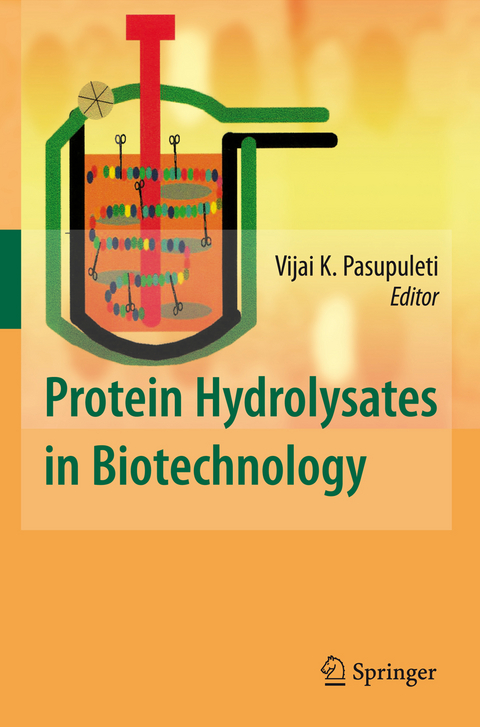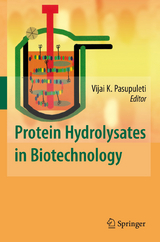Protein Hydrolysates in Biotechnology
Springer-Verlag New York Inc.
978-1-4020-6673-3 (ISBN)
Applications of Protein Hydrolysates in Biotechnology.- State of the Art Manufacturing of Protein Hydrolysates.- Towards an Understanding of How Protein Hydrolysates Stimulate More Efficient Biosynthesis in Cultured Cells.- Benefits and Limitations of Protein Hydrolysates as Components of Serum-Free Media for Animal Cell Culture Applications.- Oligopeptides as External Molecular Signals Affecting Growth and Death in Animal Cell Cultures.- Use of Protein Hydrolysates in Industrial Starter Culture Fermentations.- Protein Hydrolysates from Non-bovine and Plant Sources Replaces Tryptone in Microbiological Media.- The Use of Protein Hydrolysates for Weed Control.- Physiological Importance and Mechanisms of Protein Hydrolysate Absorption.- Protein Hydrolysates/Peptides in Animal Nutrition.- Protein Hydrolysates as Hypoallergenic, Flavors and Palatants for Companion Animals.- The Development of Novel Recombinant Human Gelatins as Replacements for Animal-Derived Gelatin in Pharmaceutical Applications.
| Erscheint lt. Verlag | 14.9.2010 |
|---|---|
| Zusatzinfo | XIII, 229 p. |
| Verlagsort | New York, NY |
| Sprache | englisch |
| Maße | 155 x 235 mm |
| Themenwelt | Naturwissenschaften ► Biologie ► Genetik / Molekularbiologie |
| Technik ► Umwelttechnik / Biotechnologie | |
| ISBN-10 | 1-4020-6673-2 / 1402066732 |
| ISBN-13 | 978-1-4020-6673-3 / 9781402066733 |
| Zustand | Neuware |
| Haben Sie eine Frage zum Produkt? |
aus dem Bereich




